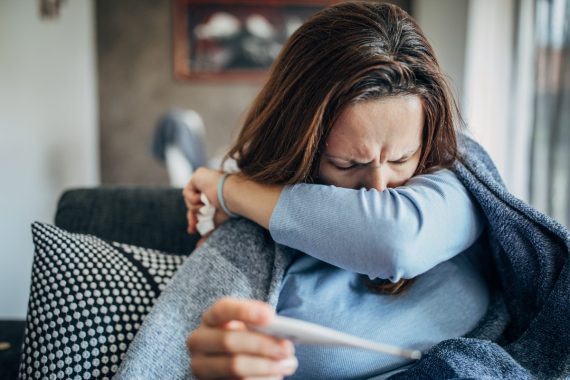The Government is launching a £1.5 million study to investigate why some people get Covid despite being fully vaccinated, while others do not.
It is being led by the newly formed UK Health Security Agency and will also look at factors influencing reinfection when someone has already had Covid-19.
A number of groups including the SARS-COV2 immunity and reinfection evaluation (SIREN) study and others who have been investigating T-cell immunity and genomic factors will be funded to better understand how individuals’ immune systems respond to Covid-19 vaccination and infection.
The aim is to answer questions around why some people get reinfections or become infected after being double jabbed and the research will also assess who long immunity lasts from the different vaccines.
In addition, researchers will look at how genetic changes in the SARS-CoV-2 virus might help it to evade the immune response.
The research will involve the 50,000 NHS staff enrolled in the SIREN and protective immunity from T-Cells in healthcare workers (PITCH) studies who have been giving PCR tests every two weeks and regular antibody tests.
Antibody results of those who test positive for Covid-19 despite having had two doses of the vaccine or a previous confirmed infection will be analysed in more detail to determine whether there are aspects of their immune response that differ from individuals who do not contract the infection.
It could help to identify the factors that increase the chance of someone getting a ‘breakthrough infection’.
And some participants will also be asked for consent for analysis of their genetic code to see if there is anything that might predict a poor vaccine response.
Dr Susan Hopkins, Covid-10 strategic response director at Public Health England said: ‘Understanding the immune response is essential not only to determine who is most at risk of infections after vaccination, but also for vaccine developers who can target key components of the immune response effectively for future booster vaccines.
‘We are pleased that this funding will allow us to better understand immunity and are very grateful to the nearly 50,000 participants who have given up their time to take part in the study.’
Dr Rupert Beale, head of the Crick’s Cell Biology of Infection Laboratory, one of the research partners said the analysis would help inform future vaccine strategy.
‘We would like to understand which aspects of the immune response are the best predictors of vaccine efficacy. This will let us target additional doses of vaccine to people who might need them, and will inform the design of next generation vaccines to get better protection against emerging viral variants.’
It comes as the health secretary said he was confident that Covid booster vaccines would start sometime in September for the most vulnerable.
The Joint Committee on Vaccination and Immunisation has yet to announce their final advice on who would be eligible for a third dose of Covid-19 vaccine this winter.
Trials assessing extra doses in immunocompromised people as well as mixing and matching vaccines are ongoing.
Pulse July survey
Take our July 2025 survey to potentially win £1.000 worth of tokens













They need to read about coronavirus 101 it’s the nature of the beast.It how it behaves and interacts with humans.We are arrogant in the extreme to think we can completely control it and win the war.So much to freedom day Boris.